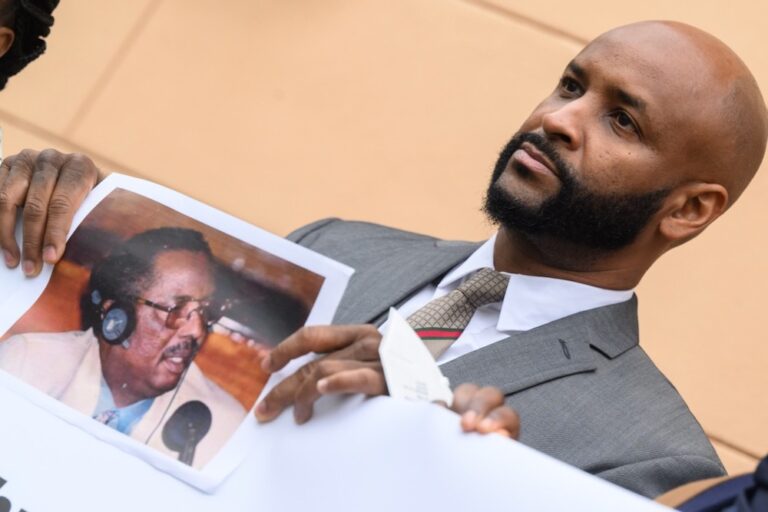(MFWA/IFEX) – One year ago, 28 March 2006, the Gambian government forcibly shut down the offices of “The Independent”, a Banjul-based bi-weekly newspaper. At the time of the closure, no explanation was offered, neither has the newspaper been allowed to resume publication. On 28 March 2006, a week after the government announced a foiled coup, […]
(MFWA/IFEX) – One year ago, 28 March 2006, the Gambian government forcibly shut down the offices of “The Independent”, a Banjul-based bi-weekly newspaper. At the time of the closure, no explanation was offered, neither has the newspaper been allowed to resume publication.
On 28 March 2006, a week after the government announced a foiled coup, Gambian security agents sealed off the newspaper’s offices and arrested all members of its staff including the general manager, Madi Ceesay, and editor, Musa Saidykhan. Saidykhan and Ceesay were kept in the custody of the notoriously feared National Intelligence Agency (NIA) for three weeks. They were tortured before being released without charge on 20 April 2006.
Another reporter for “The Independent”, Lamin Fatty, was arrested on 10 April 2006 and held incommunicado for two months. He was also tortured before being charged with publishing “false information”.
Media Foundation for West Africa (MFWA) sources indicate that without a court order, plainclothes police officers are now permanently stationed on the newspaper’s premises.
The MFWA is not surprised at the heavy-handedness meted out to “The Independent” because it was the only newspaper critical of government policies in the country at the time it was raided and shut down. The other critical newspaper, “The Point”, was silenced when Deyda Hydara, its editor, was brutally murdered by unknown assailants in December 2004. Three years on, nobody has been charged with his death.
Even before the closure, “The Independent” had known no peace since it started publishing in 1999. It became victim to arson attacks and various forms of brutality, forcing some of its journalists to flee the country. In 2003, unknown arsonists set its offices ablaze. Again in 2004, soldiers from the State Guards, a presidential security unit of the army, attacked and burnt down the newspaper’s printing press.
Last year (2006, an election year) witnessed an increase in incidents of rights violations, including the imprisonment of several journalists. The most disturbing feature of the government’s actions is its refusal to release Chief Ebrima Manneh, a reporter with the “Daily Observer”, a pro-government newspaper, since he was arrested by the NIA in July 2006 (see IFEX alerts of 26 February, 18 January 2007, 18 October, 19 and 17 July 2006).


